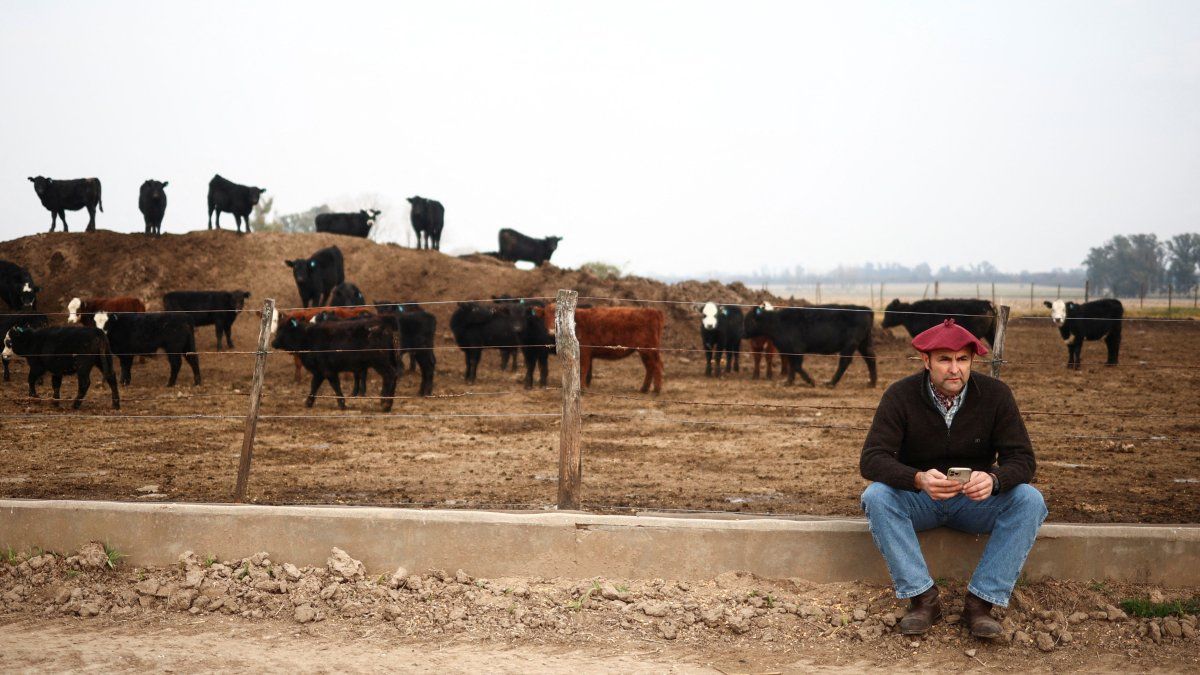The next agricultural campaign already generates Concern in the productive sector and the claims of the entities that represent those who must invest billions of dollars underground in a few weeks, ask the Government for a signal that will improve their profitability. Not everyone is satisfied with the promise of the removal of withholdings once the macro is settled, nor the reaffirmation of the ideas that export duties are a bad tax.
Last week, the Board of Directors of the Confederation of Rural Associations of Buenos Aires and La Pampa (CARBAP) once again expressed the need for greater predictability to face the 2024/2025 campaign. In a statement, the rural entity explained that “after seven months of government, the national executive should have a clear perception that the countryside needs an agenda and a precise action plan. It is necessary to have a schedule for reducing withholdings until their elimination, in order to face successive campaigns with due planning.”
More concretely, impossible. What the countryside is asking for is a schedule for reducing export duties on agricultural crops.especially the oilseed-cereal complex, which, including biodiesel and its derivatives, contributed 50.1% of Argentina’s total exports in a year of very low productivity due to drought such as 2023, according to INDEC data. That would be the key to getting out of a complicated scenario after several campaigns in which the drought took much more than crop yields. And perhaps what could stop the anger of the producers.
What is happening is that international prices are no longer at those historic highs of US$600 that we once saw, although not captured or enjoyed, as a result of the political decisions of the last governments, which were never able to take the “leg off” from the countryside so that the productive sector could show its full potential.
Carlos Castagnanipresident of the Argentine Rural Confederations (CRA), assured Ambit “In every meeting we have with the authorities, we ask that this expectation materializes or at least that there are concrete signs.”
In addition, the owner of CRA – the entity that integrates the Liaison Table– he said that “it would be a nice message if the president received us, to tell him what the countryside is like. Today the Government is engaged in a task that we respect and support, which is to put the macroeconomy in order and lower inflation, but perhaps because we do not know the sector in its entirety, we do not see the signal that we need and although we know that this will not be solved overnight, there are measures that I believe could begin to be taken.”
milei in the rural countryside rural society
Milei received support from the countryside weeks ago at La Rural, but also heard the complaints of the head of the SRA, Nicolás Pino.
Ignacio Petunchi
Some may say that the countryside is anxious and others that the Government only has promises. The truth is that not everyone in the Liaison Committee has the same view about what kind or how much patience should be shown with the government. Although most of the leaders agree that the Committee must remain united – because when there is a problem that affects everyone, it is an organization that works and relates with the Government, representing all of the agricultural sector – each of the entities has a different view of what to do, how to refer to the Government and, above all, how much credit they give it until the long-awaited announcements are made.
According to what he was able to find out Ambit, In one of the recent meetings between the Liaison Committee and the Government, the Minister of Economy was specifically asked, Luis Caputo, when they would be able to remove the withholdings. “They say that they are very clear that withholdings are a terrible tax and that when they manage to bring the fiscal deficit to zero, one of the measures would be a schedule for eliminating withholdings. When we ask them when that will be, they respond that it will be when that objective is achieved,” Castagnani explained.
Spokesmen for agricultural policy
Last week, one of the La Libertad Avanza twitter users (@traductorteama) referred to the marketing of grains. It is known that the Government has long believed that in the countryside, producers “sat on top of grains.” For some reason, the government decided from the first day of its administration to silence officials and delegate to social media representatives what the area secretaries do not dare to communicate, and a tweet is enough to prove it. Many will remember that another social media figure nicknamed “Gordo Dan” had fired Vilella several weeks before it finally happened.
Back to the point, the following text could be read on the networks: “Part of the countryside stored the grains and soybeans fell from US$465 to US$377 per ton. And the dollar, which they saw at 1,500, also fell. Argentina is normalizing. We still need to remove obstacles that facilitate decision-making. But beware of the choristers of discouragement who do not see it. Separate the noise from the information.”
Enrique Erize, head of the Novitas consultancy firm and grain market analyst, referred to these assessments and stated that “the Government has not the faintest idea of what is happening, so this advice has nothing to do with it. They don’t know what is coming, because if prices continue to fall, I think we will have a roadblock or a protest in March.”
According to the analyst, There are several bearish factors in the market. “The American harvest is coming along perfectly, investment funds are selling like never before in history in the midst of the American climate market, on the other hand the United States Department of Agriculture (USDA) has not had any chicharrita in Argentina and according to them there are 10 million more tons of corn than what is said, they also say that Brazil is going to export 50 million tons of corn when the Cariocas assure that they will export 31, therefore something strange is happening. What I mean is that with these prices the Brazilian producer is losing money, the American producer is losing money and the Argentine producer is going to lose money. We are going to see agricultural protests all over the world, therefore we will have to think about how to face the next campaign.
The desperation in the Government is such that they systematically seek – only with statements or the use of spokespersons on social networks – to motivate producers who hold grains to speed up marketing, when in reality no one has any idea what can happen with the rains in either hemisphere. Erize explained that “the Argentine producer does not sell because he does so when he needs to and with that dynamic he has not done badly in the last 20 years, therefore he sells as he needs money. I recently spoke with someone in the Government and I told them to think about something, because the reality is that the numbers do not add up.”
This is the point where the lack of understanding collides with reality, because as has been said recently, the times of the countryside are not the times of the Government and the issues that the countryside wants to address are not those that the Government puts on the table.
For now, Iraeta is friendly, meets with some agricultural entities and limits himself to recalling the announcements that Milei made in La Rural linked to the Elimination or reduction of DEX for animal proteinBut that is not enough and the agricultural sector finds the announcements wanting more because the game is being played on another field, that of extensive crops.
According to what he was able to find out Ambit, The sale of inputs for the main crop campaign is very delayed and only 30% of what was sold last year at this same date has been sold.
Less corn will be planted due to fear of leafhopper and the area of soybeans will increase but with a smaller technological package, which means that those who sow on rented land will have to fine-tune their pencil if they want to have a profitable campaign.
The outlook will be complex for 70% of Argentine producers, who sow on rented land and will also have to face high rental costs. If it is hard for the countryside, it will also be hard for the economy in 2025.
Source: Ambito




